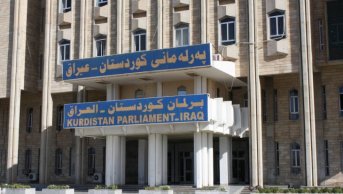Reasons and Obstacles in Relaunching Israel-Palestine Peace Talks

The agenda in the Middle East has been changing so rapidly that many issues remain unsolved without being discussed.
While changes in Egypt and Syria have been high on the agenda for a month, the elections in Iran and Kuwait, and the developments in Tunisia, have not been discussed in detail. At this very point, the talks between Israel and Palestine in Washington were relaunched under the leadership of US Secretary of State John Kerry, and Martin Indyk was set to serve as mediator in the negotiations. Kerry's six visits to the region in only five months were certainly expected to yield results. However, the way the talks, which were brought onto the agenda with assertive words from the US, started and the expectations regarding the outcome of the negotiations make people believe that the developments are beyond a process to end before long. At this point, probably the first question is why the talks have been resumed after a three-year break. The reasons why Israel and Palestine were involved in the process can be listed as follows:
Why is Israel back at the peace table?
Normally, it seems like there is no reason for Israel to return to peace talks. Israel continues to expand its settlements in the Palestinian territories. In Israel's domestic politics, the Palestine issue has faded into the background, and instead social and economic problems have come to the fore. In terms of security, developments such as Syria, Egypt and Iran have been at the forefront. In this regard, a question comes to mind: Why has the Israeli government become involved in the process despite all the political risks it may encounter? And why did Israel accept it? Because this is what the US wants.
At this point, the reasons for getting Israel back to the table are:
1. The Netanyahu government needs international support. As the EU decision to impose economic sanctions on the territories seized in the post-1967 period shows, support for Israel's intrusions in Palestine is on the decline. As a result of the years-long sanctions, pressure exerted on the Palestinians, and the decline in support for Israel, the Netanyahu government does not want to be seen as the party to flee from peace.
2. The Obama administration showed that it is serious about relaunching the process by visiting the region six times in five months. The US seeks to revive peace talks in the Middle East whether they will be successful or not. It does not seem reasonable to oppose relaunching negotiations for Israel, as long as they don't have to stop settlement construction or give guarantees regarding the 1967 frontiers in return. Moreover, it should not be forgotten that hindering the process that the US wants to relaunch will have negative impacts on Israeli foreign policy and the balance within the coalition.
3. With the start of the process, the idea of returning to pre-1967 frontiers with some changes, the release of Palestinian prisoners and the idea that the settlements, except for the 1967 frontiers, will be demolished or abandoned have created a great reaction in the coalition government. The right wing has been criticizing Prime Minister Benjamin Netanyahu for acting against the arguments he had pursued for years. However, the fact that two-thirds of the cabinet approved the decision to release 104 Palestinian prisoners shows that Netanyahu can withstand these possible reactions.
4. Netanyahu might have drawn criticism by releasing Palestinian prisoners, but considering the other conditions that were put forward by the Palestinians to relaunch negotiations, it seems like a price that can be paid. Netanyahu, facing pressure from the US, could either accept this condition, agree to negotiate the pre-1967 frontiers, or stop settlement construction. Netanyahu's current decision was both easier to implement and would draw less criticism than the other options.
5. Regional developments have caused Israel to revise its foreign policy. After the events in Egypt, the future of the Hamas administration in Gaza remains to be seen. Hamas will by no means be excluded in the short term, but there still might be a change in Gaza. This is an important development for Israel. In Syria, on the other hand, the regime has had substantial gains. The most important thing for Israel is the extension of the conflict, because victory of one of the parties would not be for the good of Israel. If the Iranian-Syrian axis survives this conflict as well, the power balance in the region could worsen for Israel.
6. Israel pursued a wait-and-see policy on the outcomes of the Arab Spring. However, when the process headed in a different direction, Israel joined in. Israel breathed a relative sigh of relief over two important countries: Jordan and Egypt. On the other hand, the worsening relations between Saudi Arabia and the Muslim Brotherhood (MB) are another important development for Israel. Whether peace is established or not during this process, it seems unreasonable for Israel to escape from Fatah, having good relations with those states. It is important for Hamas not to cause any trouble to Fatah, as Hamas' relationship with its partners in the regional balance is becoming weak.
7. Pressure from the EU has made a significant impact on Israel. As a matter of fact, it might be claimed that one of the most important initiatives of the EU in the Middle East in recent years has been its decision to place an embargo on Israel beyond its 1967 borders. Israel does not want to face economic exclusion on top of its diplomatic exclusion. The economic result for Israel might be more severe than expected. None of the EU countries would attempt to impose harsher sanctions on Israel if it comes to the peace table. Instead they will at least wait for the negative or positive outcomes of the peace negotiations under the guidance of the US. Therefore, the negotiation process might serve as a shield in Israeli-EU relations.
8. Iran is still highest on the agenda for Israel. Despite a moderation following the presidential elections in Iran, Israel believes that the threat continues. Hence, Israel needs the diplomatic and political support of the US and EU to increase the economic and military sanctions on Iran. Currently, it is not possible for Israel to receive this support by avoiding the suggestion of coming to the peace table.
9. The concrete pressure of security on Israel has been reduced by several reasons, such as the fact that Egypt's post-coup policy weakened Hamas at least in military terms, the Syrian army grew weaker to a great extent due to the civil war, and Hezbollah transferred a substantial part of its forces to Syria after getting involved in the civil war in the country. In practical terms, Iran is now the only military force that could pose a security threat to Israel. In that case, if Israel seeks diplomatic-military support against Iran, then it can make concessions in the areas where it thinks the security threat has decreased. Moreover, considering that those concessions will not strategically undermine Israel immediately (because of the weakness of others), it is more sensible to make concessions while strong than while weak.
Why is Palestine back at the peace table?
Like Israel, Palestine also avoided the negotiation process for a long time. The most important reasons were the Palestinians' prioritization of gaining sovereignty, their belief in a lack of will to make peace in Israel, and their efforts to increase the pressure in the international arena to make Israel come to the table. In fact, until a couple of weeks ago, Mahmoud Abbas was saying that he would not come to the peace table unless the construction of settlements is stopped. So, it will also be useful to analyze the motives of Palestine, like the motives of Israel.
1. During the talks, Fatah and Mahmoud Abbas draw their strength from negotiating with Israel. In a period when the Palestine problem has come to deadlock, it is clearly seen that Hamas and Fatah have been following different roads. While Hamas draws its strength from maintaining an armed struggle, Fatah believes that the Palestinians' rights can be obtained by means of negotiation. Hence, Fatah has preferred to resort to diplomacy. So, Fatah does not have a chance to run away from the table if it believes that some gains will be obtained, especially in the short term.
2. The release of 104 Palestinian prisoners was an important motive for Abbas. A broader international recognition of Palestine after the UN vote last year strengthened the hand of Abbas in terms of domestic policy. The release of 104 Palestinians, including old and former prisoners, was welcomed across all Palestine. This can be regarded as a new gain for Abbas before a diplomatic attack expected from Palestine in September.
3. Although the US asserts that the process will terminate in nine months, and the final status issues will be solved during this process, Palestinians believe that the process will not last that long and will not be successful. However, while they expect this process to remain inconclusive, they don't oppose the US's request. It appears more reasonable to hold talks in compliance with the US, rather than contradicting the US, as the process will fail anyway. Palestine wants to show that the internal conflicts in Israel are so divisive that it will not be able to take the necessary steps for peace with Palestine, thus making Israel the one to undermine the diplomatic process or leave the table, not the Palestinians.
4. Palestinians do not have great expectations for the relaunch and conclusion of the peace process. In Palestine, people expect their living standards to be restored and this is a top priority for them, but most think that political issues like the peace process, which have been repeated many times, do not make sense. In other words, failure of the process would not create an additional political burden on Abbas.
5. Fatah knows that there is no reconciliation within Palestine on the horizon. It seems unlikely that the disputes among Palestinian groups, which have convened several times already, can be easily solved. Furthermore, the divisions within Hamas have deepened. The priorities of the former foreign minister, Mahmoud al-Zahar, Hamas Chairman Khaled Mashal and current Prime Minister Ismail Haniyeh are different. This does not mean that Hamas will split, but it is obvious that there is a problem of unity.
In addition to all these, the damage sustained by the Muslim Brotherhood in Egypt, Jordan and Syria has also decreased international support for Hamas. It is clear that following the coup in Egypt, Hamas has been one of the parties most negatively affected by the process. Hence, Abbas is not rushing to reconcile with Hamas. Under the circumstances, his involvement in a chain of negotiations which Hamas opposes seems normal. As long as the negotiations continue, it seems unlikely that he will reach an agreement with Hamas.
The attitude of the US, Israel and Europe against Hamas is obvious, and Abbas might be seeking to exclude Hamas again by tipping the scales in its own favor. The fact is that while Hamas asserts that the struggle will not yield positive results without restoring unity in Palestine, its entrance into peace talks without waiting for the outcome of Fatah's efforts for unity shows its priorities in Palestine.
The tension between Fatah and Hamas in the recent period is not only limited to this. Hamas asserts that Fatah is also involved in a defamation campaign launched by Egypt against Hamas, and condemns it. To sum up, the negotiations might turn into a useful instrument for Fatah in the power struggle with Hamas.
What are the obstacles before the relaunched negotiations?
1. Two very fragile elements in Kerry's initiative might lead the parties to either reconciliation or failure. First of all, the negotiations expect to conclude the final status issues in nine months, not the transition process of interim measures. Secondly, reviving the Arab Peace Plan is in question. Thus, if peace is made, the Arab League will recognize Israel, and a new period will begin between Israel and the Arabs while the State of Palestine is also established. It is an extremely optimistic scenario which has already been suggested. Also, the 1993 Oslo Declaration of Principles was signed during a period when power balances in the Middle East had altered. Today, the Middle East is taking a new turn, and the fact that the Palestine issue and Arab-Israeli peace have come to the fore is quite normal. However, its success depends not only on the will of Israel and the Palestinians but also on changes occurring in a wide area from Syria to Egypt and from Iran to Saudi Arabia.
2. The settlements that have been built systematically and deliberately by Israel since the late-1970s are considered a part of the policy of rendering the borders of the State of Palestine unworkable. Israel's settlement construction is aimed at making it impossible to draw borderlines in a potential State of Palestine, rather than expanding the territories under its own rule. Leaving the strategic aspect of the issue aside, its status as a precondition for relaunching or maintaining negotiations in recent years has made it important. Palestinians cited the settlements as the reason for not relaunching talks, and the Israeli government took the decision to launch new construction in order to escape from the table. Nevertheless, the solution of this problem completely depends on political will. Although there are some 500,000 Israelis who reside in the post-1967 territories, 80 percent of them reside in 5 percent of the settlements. In other words, it is possible to solve the bulk of the problem through the exchange of territories between the parties or through a reasonable agreement. It would by all means cost billions of dollars. If one of the parties bore the expenses, it might be easier to solve the problem. Otherwise, the plan would create new challenges.
3. The most important obstacle before the peace process is the fact that the solution of final status issues is quite difficult. The most difficult to solve is not the borders of the State of Palestine, but probably the recognition of the Palestinians' right of return. Conceding the right of return to the Palestinians, who have been displaced from their homes since 1948, is an extremely critical decision for both parties. If Palestine backed out, it would be a disappointment for millions of Palestinians who have been living in the hope of returning to their homes for decades. For Israel, on the other hand, it is more critical. For the majority of the right wing in Israel, the subject is as important as Jerusalem, and perhaps even more so. If Palestinians are granted the right of return and return to their homes within the borders of Israel, the number of Arabs could exceed the Jewish population in Israel in the medium term. Most Israelis believe that this situation will eliminate the Jewish and Zionist character of the State of Israel, and rock the State of Israel to its foundations. More clearly, it seems very unlikely that the Israelis, who are afraid of being a minority within their own borders, will recognize the right of return.











